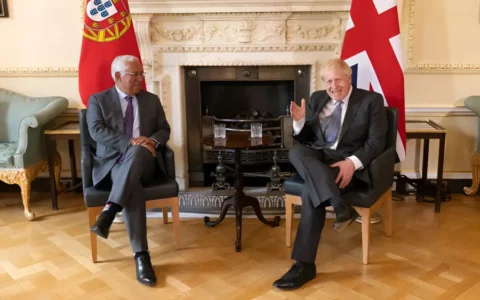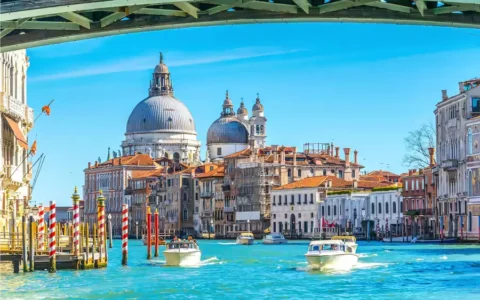As the world of investment migration evolves, traditional routes are giving way to more flexible, asset-driven frameworks. One of the more sophisticated strategies that are currently emerging involves the pairing of cross-border investment with residency planning — and Portugal is fast becoming the spotlight for this trend.
At the heart of this development is the D2 Entrepreneur Visa, a lesser known but increasingly viable alternative to Portugal’s traditional Golden Visa programme. While the Golden Visa currently relied on funds acquisition, the D2 route invites business participation — rewarding operational substance over capital presence alone.
This shift opens the door for structures that engage meaningfully with business activity, while still offering the residency benefits investors seek. A recent example illustrates how this can work across jurisdictions.
A European Residency Route Anchored in British Assets
In the north-west of England lies Formby Hall, a long-established hospitality asset with over a century of heritage. Known for its 18-hole golf course and spa facilities, it has historically attracted a high-end clientele from sport, business and public life.
The property was recently acquired by the Harland & Poston Group, operating the investment through HP Invest, a company incorporated in Portugal. The acquisition forms part of a wider redevelopment programme, aimed at elevating Formby Hall’s offering to meet modern leisure and high-end event demands.
What’s notable here isn’t simply the asset — but the structure. Investors participating in the project do so through HP Invest, a Portuguese business, thereby fulfilling one of the primary requirements for the D2 Entrepreneur Visa.
David Poston, Chief Executive of HPG, notes:
“This approach allows us to reshape how high-value assets are opened to investors. We’re creating access, not just returns. And in doing so, we’re linking lifestyle, mobility and growth in one coherent structure.”
Under the Portuguese immigration law, foreign nationals may qualify for a D2 visa if they establish or hold equity in a company based in Portugal. Crucially, that company is not restricted to domestic-only operations; it may hold or manage assets abroad. This detail is what makes international investment-led residency strategies viable within current EU frameworks.
Why Investors Are Looking Beyond Traditional Programmes
Portugal has long been viewed as a stable, EU-aligned jurisdiction with favourable tax policies and a high standard of living. The changes which the Golden Visa’s programme have gone through in October 2023, culminating in the end of the Real Estate investment, created a gap for those seeking EU mobility without full relocation.
The D2 Visa is emerging as the response — more demanding in structure, yet also more sustainable. It requires:
- Ownership or executive role in a Portuguese-registered company;
- A feasible business plan or record of activity;
- Proof of financial means;
- Residence arrangements within Portugal;
- Basic administrative compliance (tax number, bank account, etc.).
Once approved, the applicant receives a 2-year residence permit, renewable for successive periods, with a path to permanent residency or citizenship after 5 years. By investing through a Portuguese based company like HP Invest, participants benefit not only from potential returns on an international hospitality asset, but also from the right to reside in Portugal, and with it, an easier access to the Schengen area.
Here’s What This New Cross-Border Model Means for the Industry
The cross-border structure reflects a broader movement in investment migration — away from those programmes designed around simple asset transactions, and toward the ones that engage with enterprise, risk, and reward.
This new model balances legal substance with commercial intent: a real business, managing real assets, with room for investor participation. For international entrepreneurs, and globally mobile individuals, it allows capital to work in multiple dimensions — financial, legal, and lifestyle.
As borders tighten and compliance expectations rise, the appeal of these hybrid models will likely grow. They encourage engagement with local economies and legal systems, while preserving the global outlook modern investors require.
Looking Forward with the Harland & Poston Group as a Partner
 With more investors seeking flexible routes to the EU residency — and regulators placing closer scrutiny on passive capital inflows — the Portuguese D2 Visa offers a timely alternative, rewarding those prepared to enter the market through operational alignment rather than transactional shortcuts.
With more investors seeking flexible routes to the EU residency — and regulators placing closer scrutiny on passive capital inflows — the Portuguese D2 Visa offers a timely alternative, rewarding those prepared to enter the market through operational alignment rather than transactional shortcuts.
In partnership with Harland & Poston Group, we can connect your clients to a pathway that combines Portuguese residency prospects with competitive returns across hospitality, real estate and services. Organisations wishing to explore co-investment, distribution or advisory collaborations are invited to send enquiries to the Group’s new-business team, which is already charting the next wave of cross-border capital and residency solutions.










